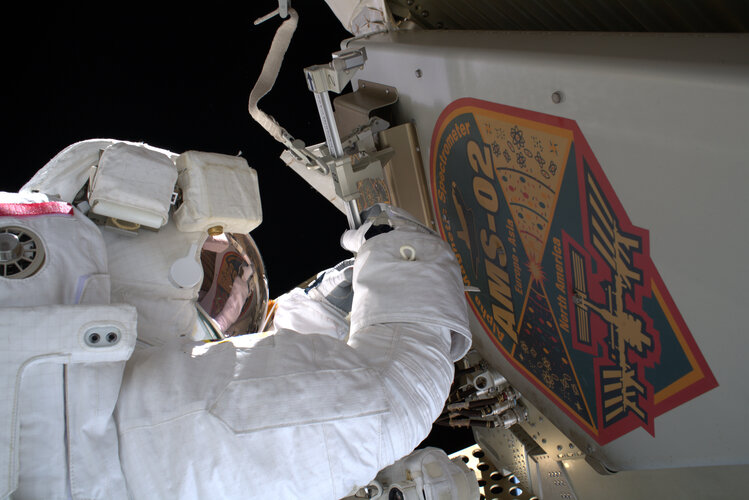The International Space Station’s largest scientific instrument celebrates a decade in orbit. Wednesday 19 May 2021 marks 10 years since the cosmic-ray-hunting Alpha Magnetic Spectrometer (AMS-02) was installed on the exterior of the Space Station.
AMS-02 is a sub-atomic particle detector that looks for dark matter, antimatter and measures cosmic rays. It took 16 countries and nearly 20 years to make it a reality. It was assembled at CERN, tested at ESA’s ESTEC facility in the Netherlands and installed on the Space Station in 2011.
More than 175 billion cosmic rays later, AMS-02’s scientific results have changed our understanding of the origin of these particles and the way in which they journey through space at almost the speed of light. These include the revelation that primary cosmic rays have at least two distinct classes, one made of light nuclei and another made of heavy nuclei. Primary cosmic rays are produced in supernovae explosions in the Milky Way and beyond, and they can travel for millions of years before reaching AMS.
In this image, ESA astronaut Luca Parmitano is seen conducting the first task in a series of four complex spacewalks carried out to maintain AMS-02’s cooling system during his Beyond mission. After removing this debris shield, Luca handed it to NASA astronaut and fellow spacewalker Andrew Morgan who cast it away to burn up harmlessly in Earth’s atmosphere. The pair, and teams on the ground, then got their first look at the worksite.
Over 20 new tools were designed for the spacewalks carried out by Luca and Andrew. Though the instrument was never designed to be maintained in orbit, their work extended its lifetime to match that of the Station and will ensure it continues to collect cosmic data to shed light on the origin of our Universe for many years to come.



 Image:
10 years of AMS-02 on the International Space Station
Image:
10 years of AMS-02 on the International Space Station